 W
WHijitsuryokuha Sengen is the fourth studio album by Japanese singer/songwriter Chisato Moritaka, released on July 25, 1989 by Warner Pioneer. It features two versions of Moritaka's cover of the 1971 Saori Minami song "17-sai". The album is themed around Moritaka's awareness of being an idol, with songs addressing her flaws, failed romances, and interactions with her fans.
 W
WKokon Tozai is the fifth studio album by Japanese singer/songwriter Chisato Moritaka, released on October 17, 1990 by Warner Pioneer. A limited edition release included a 32-page photo book.
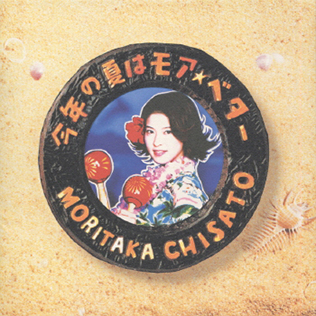 W
WKotoshi no Natsu wa More Better is the 12th studio album by Japanese singer/songwriter Chisato Moritaka, released on May 21, 1998 by zetima. The album was produced by veteran musician Harry Hosono and features cover versions of two of his songs. In addition, it includes "Summer Beach", a re-recording of "Natsu no Umi" from Moritaka's 1992 album Rock Alive. The album was also the first album since Mite to be released on LP format. During the time of the album's release, One Up Music merged with YJ Sounds to form zetima, and the label's distribution rights were changed from Warner Music Japan to Sony Music Entertainment Japan.
 W
WLucky 7 is the eighth studio album by Japanese singer/songwriter Chisato Moritaka, released on May 10, 1993. It was Moritaka's final studio release under Warner Music Japan. The album's title signifies the seventh anniversary of Moritaka's debut. A limited edition release included a 32-page photo book.
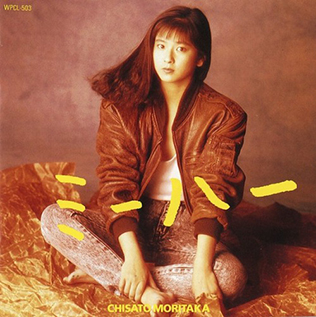 W
WMi-ha is the second studio album by Japanese singer/songwriter Chisato Moritaka, released on March 25, 1988 by Warner Pioneer. In contrast to the city pop-oriented debut album New Season, Mi-ha is a mix of rock and pop tunes, with its tagline: "Rock? Pop? Whichever is fine." . The album also marked Moritaka's songwriting debut with the title track.
 W
WMite is the third studio album by Japanese singer/songwriter Chisato Moritaka, released on November 17, 1988 by Warner Pioneer. After her second album Mi-ha and her EP Romantic, Moritaka wrote the lyrics for the majority of the songs in this album; a trend that continued for the rest of her career.
 W
WMoritaka Tofu (森高豆腐) is a remix album by Japanese singer/songwriter Chisato Moritaka and DJ tofubeats, released on December 17, 2014 by Warner Music Japan. The album features remixes of Moritaka's hit songs and new tracks composed by tofubeats. To promote the album, the duo hosted the "Don't Stop The Music" First Album "Special Night @ WOMB" show in Shibuya on its release date.
 W
WNew Season is the debut studio album by Japanese singer Chisato Moritaka, released on July 25, 1987 by Warner Pioneer. It was produced by Yūzō Shimada, who also produced albums by Akina Nakamori, Naomi Tamura, and Aco. At the time of the album's recording, Moritaka had not started to write songs; instead, the album's songs were written by several composers such as Hiromasa Ijichi, Hideo Saitō, and Shingo Kanno.
 W
WPeachberry is the 11th studio album by Japanese singer/songwriter Chisato Moritaka, released on July 16, 1997 by One Up Music. The album marked the 10th anniversary of Moritaka's music career. A limited edition release was packaged in a cardboard box and included 13 photographs; each with lyrics to a corresponding song.
 W
WPepperland is the seventh studio album by Japanese singer/songwriter Chisato Moritaka, released on November 18, 1992 by Warner Music Japan. Named after a small music hall in Kumamoto where Moritaka started playing music, the album marked a shift in musical direction in her career, as she became more engaged in playing musical instruments such as drums, rhythm guitar, bass, and piano. It also has a more stripped-down sound in comparison to Moritaka's previous albums. Pepperland is the only studio album in Moritaka's catalog to not have any singles.
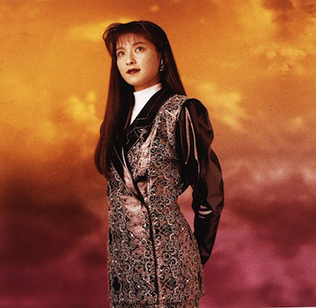 W
WRock Alive is the sixth studio album by Japanese singer/songwriter Chisato Moritaka, released on March 25, 1992 by Warner Music Japan. The album was recorded at The Hit Factory in London. A limited edition release included a 32-page photo book.
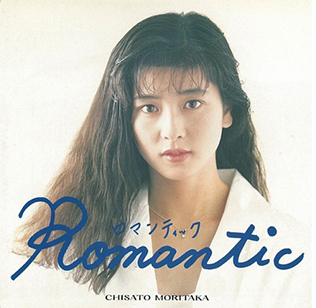 W
WRomantic is an EP by Japanese singer/songwriter Chisato Moritaka, released on July 10, 1988 by Warner Pioneer. The EP is themed around summer, headlined by Moritaka's cover of Dionne Warwick's "Do You Know the Way to San Jose". While the album is packaged in a standard 12 cm CD case, the disc itself is an 8 cm mini CD.
 W
WSava Sava is the 13th studio album by Japanese singer/songwriter Chisato Moritaka, released on September 9, 1998 by zetima. The album is unique for containing a 22-page photo book and a fold-out poster featuring the same head shot of Moritaka in slightly different angles. It was Moritaka's final studio album prior to her marriage to actor Yōsuke Eguchi on June 3, 1999 and her subsequent retirement from the music industry.
 W
WStep by Step is the ninth studio album by the Japanese singer/songwriter Chisato Moritaka, released on July 25, 1994. This was Moritaka's first album under One Up Music. The album includes the song "Kaze ni Fukarete", which became her first No. 1 hit on the Oricon singles chart. Step by Step is Moritaka's first album in to include a cover version of a Beatles song. A limited edition release included a 32-page photo book.
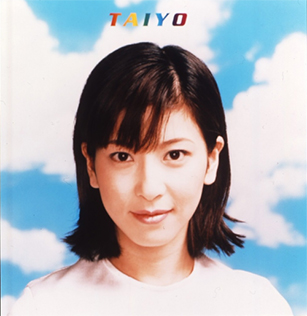 W
WTaiyo is the 10th studio album by Japanese singer/songwriter Chisato Moritaka, released on July 15, 1996 by One Up Music. The album features the hit singles "Yasumi no Gogo", "So Blue", and "La La Sunshine", as well as two commercial jingles for Suntory liquor products. "Gin Gin Gin" served as the basis for Moritaka's 1995 Christmas single "Jin Jin Jingle Bell". Taiyo is also the second album in Moritaka's catalog to include a cover version of a Beatles song. A limited edition release included a lenticular cover featuring Moritaka changing her facial expressions and a 10-page photo book.
 W
WYouTube Public Recording & Live at Yokohama Blitz is a live album by Japanese singer/songwriter Chisato Moritaka, released on May 15, 2013. Recorded live at the Yokohama Blitz in Yokohama, Japan on November 24, 2012, this was Moritaka's first-ever live album and was part of her personal campaign to self-cover 200 songs on her YouTube channel. The album includes a bonus DVD that highlights the making of four self-cover videos.